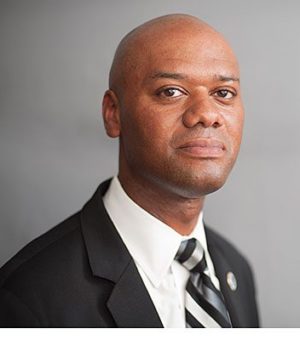
Biden Signs Six-Bill Spending Package Funding Key Criminal Justice Programs
On March 9, 2024, President Joe Biden signed a $460 billion spending package for Fiscal Year 2024, allocating funding for multiple state and local justice system grant programs within the Department of Justice. Included in the six-bill package are key initiatives prioritized by Congress and the White House, such as the Justice and Mental Health Collaboration Program, the Justice Reinvestment Initiative, and the Second Chance Act. Here’s a breakdown of the funding provisions:
Justice and Mental Health Collaboration Program (JMHCP): $40 million was allocated for JMHCP (down from $45 million in FY2023) to continue supporting criminal justice and behavioral health systems across the country as they work to safely divert people from the justice system and improve access to treatment and services. Initially authorized under the Mentally Ill Offender Treatment and Crime Reduction Act and reauthorized under the Justice and Mental Health Collaboration Reauthorization Act of 2022 and the Traumatic Brain Injury and Post-Traumatic Stress Disorder Law Enforcement Training Act, JMHCP funds are critical to strengthening connections among community-based organizations and criminal justice agencies. Grantees have used JMHCP funding to develop and improve mental health courts, mental health and substance use disorder treatment for people in the criminal justice system, community reentry services, local law enforcement training to help officers improve responses to people who have mental health needs, and many other interventions intended to address the behavioral health needs of people who come into contact with the criminal justice system. U.S. Reps. Bobby Scott (D-VA), Norma Torres (D-CA), and Don Bacon (R-NE); and U.S. Senators John Cornyn (R-TX) and Amy Klobuchar (D-MN) circulated letters in Congress in support of more funding for this program.
Justice Reinvestment Initiative (JRI): $32 million was allocated for JRI (down from $35 million in FY2023), a data-driven approach that helps states reduce corrections and related criminal justice spending and reinvest savings into strategies that improve public safety. In recent years, more than 40 states have used a JRI approach to develop policies to slow overall prison growth and, for some states, reduce the total prison population. States have invested hundreds of millions in effective supervision and treatment programs to make communities safer. These investments have included efforts to improve community supervision, expand community-based treatment and services, create grants to support local law enforcement, enhance victims’ services, and more. Through JRI, states have reported cumulative savings and averted costs over $3.2 billion and have reinvested more than $850 million in strategies to help make communities safer. U.S. Reps. Adam Schiff (D-CA), Carol Miller (R-WV), and Lucy McBath (D-GA); and U.S. Senators Thom Tillis (R-NC) and Sheldon Whitehouse (D-RI) circulated letters in Congress in support of more funding for this program.
Second Chance Act: $117 million was allocated for the Second Chance Act (down from $125 million in FY2023) to improve outcomes for people returning to their communities from prisons and jails. The Second Chance Act was initially authorized in 2009 and reauthorized as part of the landmark First Step Act of 2018. Since its enactment, recipients of Second Chance Act grants have provided vital services to support people in reentry, including employment training and assistance, substance use disorder treatment, education, housing, family programming, mentoring, and victims’ support. The Second Chance Act also funds Reentry 2030, a collaboration between the CSG Justice Center and the Bureau of Justice Assistance, a component of the Department of Justice, that aims to dramatically improve reentry success in states across the country. So far, there have been more than 1,100 grants awarded in 49 states, the District of Columbia, and U.S. territories, allowing jurisdictions to develop, improve, and expand reentry programs and policies. Second Chance Act grantees have also served more than 400,000 participants since 2009. U.S. Reps. Bill Johnson (R-OH) and Danny Davis (D-IL); and U.S. Senator Cory Booker (D-NJ) circulated letters in Congress in support of more funding for this program.
The House and Senate entered negotiations with vastly different bills for FY2024, as both chambers had to decide how much government spending to cut under the budget caps that were agreed to as part of the debt limit deal signed into law last year. However, even with these differences, all three programs were significantly funded in the spending package.
“Democrats and Republicans in Congress have shown bipartisan support for these programs, whose continued funding will sustain impactful work happening in states and communities across the country,” said Megan Quattlebaum, director of the CSG Justice Center. “We applaud these efforts and look forward to seeing the positive outcomes these programs will continue to achieve in our communities.”
Commerce, Justice, Science, and Related Agencies funding summaries and explanatory statement are below:
About the author

When returning to their communities from criminal justice settings, people with behavioral health needs face barriers in accessing…
Read MoreNew Hampshire Department of Corrections Commissioner Helen Hanks presents at the Medicaid and Corrections Policy Academy in-person meeting.
Read MoreThe sharp rise in school shootings over the past 25 years has led school officials across the U.S.…
Read More Assigned to the Cloud Crew: The National Incarceration Association’s Hybrid Case Management for People with Behavioral Health Needs
Assigned to the Cloud Crew: The National Incarceration Association’s Hybrid Case Management for People with Behavioral Health Needs
When returning to their communities from criminal justice settings, people with behavioral…
Read More Meet the Medicaid and Corrections Policy Academy Mentor States
Meet the Medicaid and Corrections Policy Academy Mentor States
New Hampshire Department of Corrections Commissioner Helen Hanks presents at the Medicaid…
Read More Taking the HEAT Out of Campus Crises: A Proactive Approach to College Safety
Taking the HEAT Out of Campus Crises: A Proactive Approach to College Safety
The sharp rise in school shootings over the past 25 years has…
Read More From 911 to 988: Salt Lake City’s Innovative Dispatch Diversion Program Gives More Crisis Options
From 911 to 988: Salt Lake City’s Innovative Dispatch Diversion Program Gives More Crisis Options
A three-digit crisis line, 988, launched two years ago to supplement—not necessarily…
Read More Matching Care to Need: 5 Facts on How to Improve Behavioral Health Crisis Response
Matching Care to Need: 5 Facts on How to Improve Behavioral Health Crisis Response
It would hardly be controversial to expect an ambulance to arrive if…
Read More










